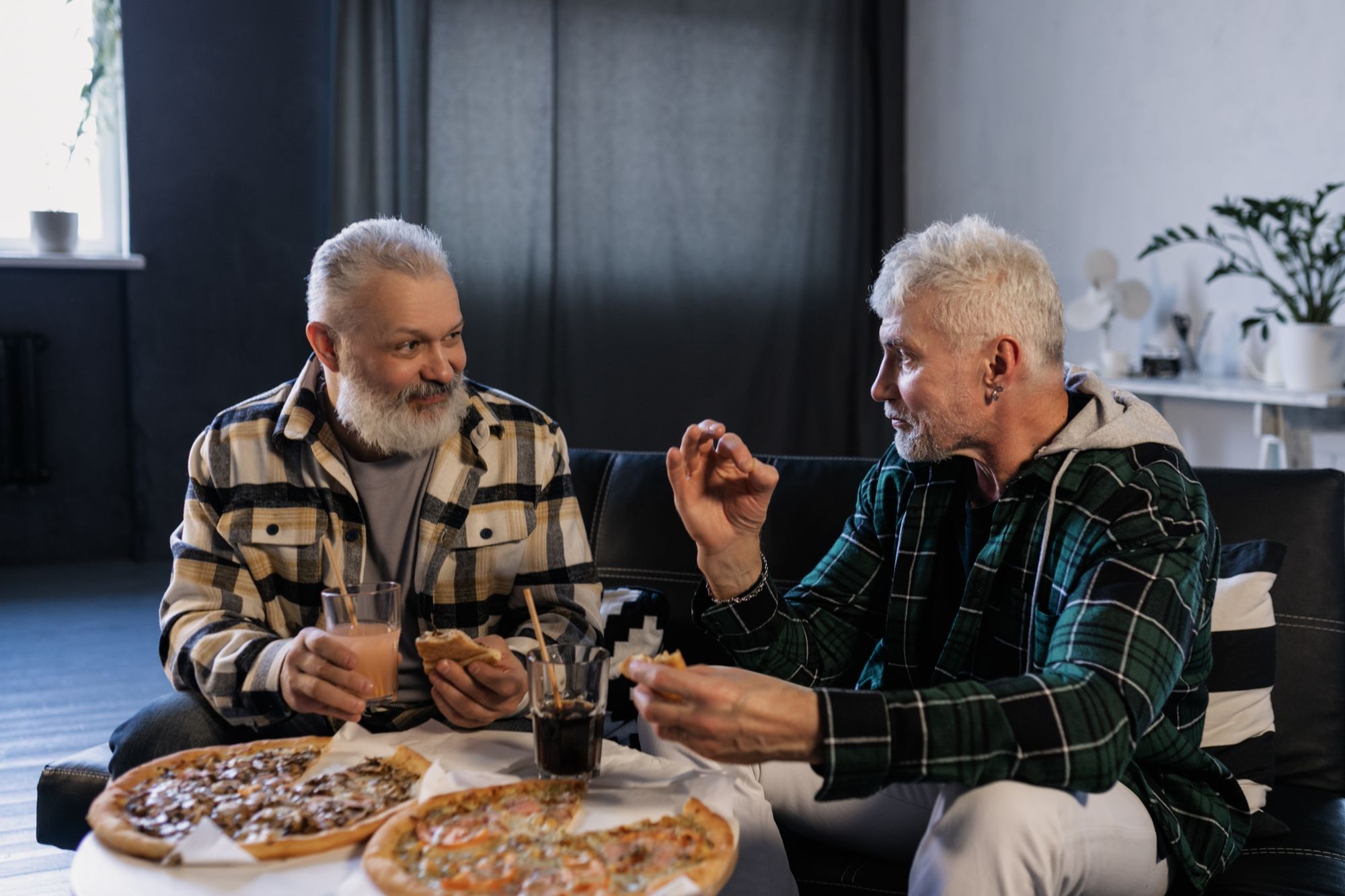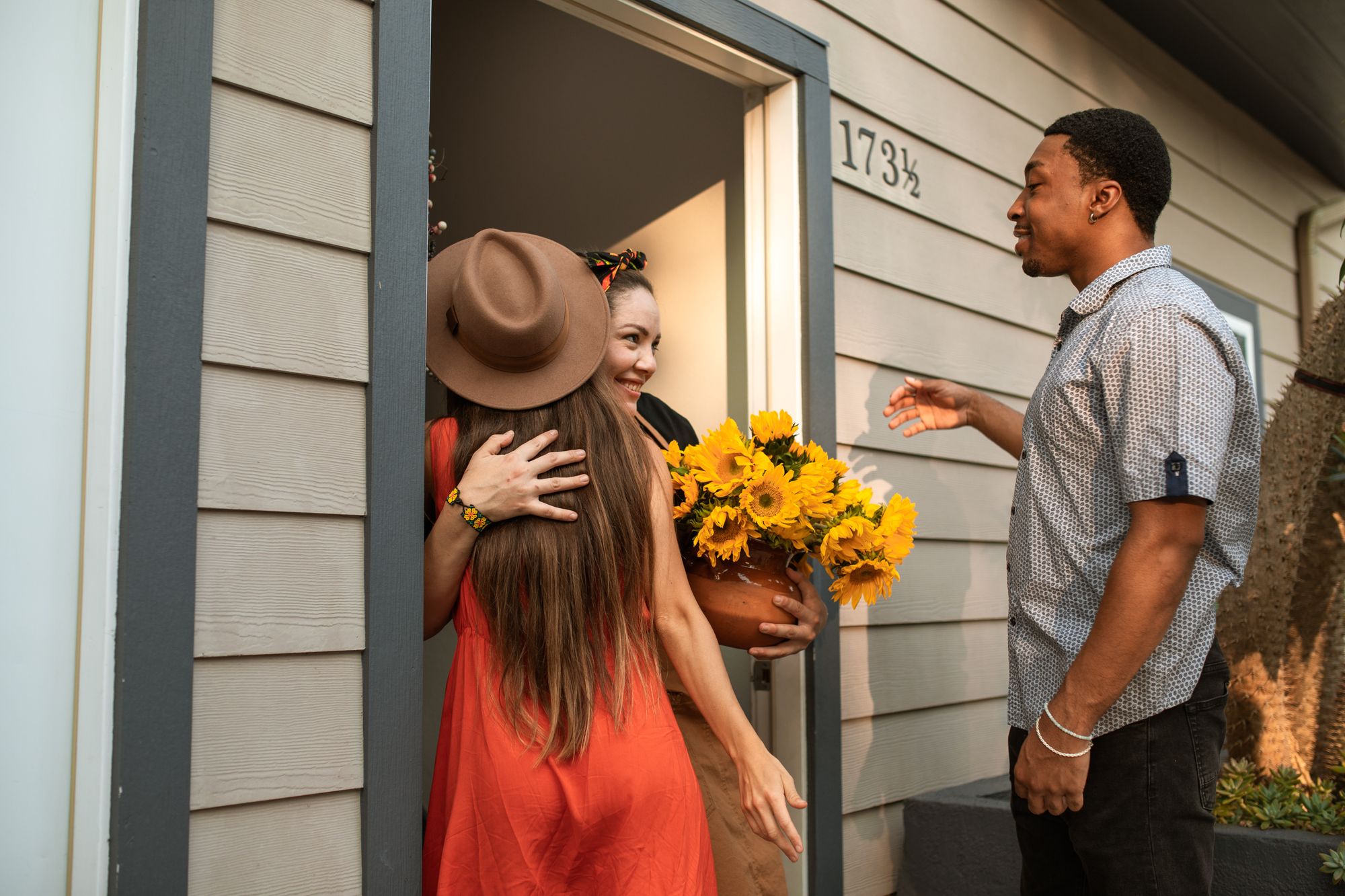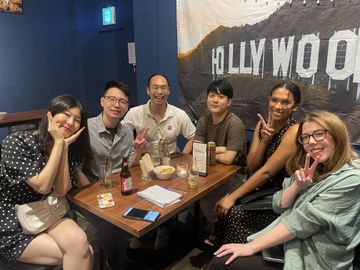Introduction
It is said that a man who gains only a few good friends in life is a successful man. Someone who is learning Korean or adapting to Korean culture only needs a few good Korean friends to be successful. But, it can be hard to find friends among people who speak a different language and carry a different culture than you.
Meeting Korean friends is one of the most common troubles foreigners have in Korea. I lived in Korea for 2 years and can attest to the hardship of finding friends in Korea. Even though it was hard, I left the country with several friends for life that I still keep in contact with.
In this blog, I will use my experience to advise you on how to make Korean friends in Korea. First, I will recommend some places where you can find Korean friends. Then, I will explain some cultural differences that Korea has that will help you understand Korean people and interact with them on a deeper level. Let’s jump into it!
New Expressions
| Hangeul | Name |
|---|---|
| I feel attached | |
| To have or not have an awareness of your surroundings | |
| To have a keen sense of your surroundings | |
| To have sense | |
| Let's speak comfortably | |
| Can I speak comfortably | |
| What should I call you? | |
| We are the same age. | |
| Your house is pretty | |
| Please take off your shoes | |
| Do you want to go to my house? | |
| You gained weight | |
| Do you think you can do this for me? | |
| I think that is going to be difficult (polite way of saying ‘no’) |
Where to Find Korean Friends
There are many ways to find Korean friends. Really, methods of finding Korean friends are only limited to your imagination. But, there are a few ways that I have found to be more effective than others.
Participating in clubs or activities you are interested in is a good way to find friends with similar interests as you. Local church congregations are also an effective way to meet people your age and find a community. If you attend school or work in Korea, try interacting with those around you. People may seem shut off at first, but the more you interact with them, the more they will open up.
Lastly, if you have trouble finding people face-to-face, try finding people online. There is no shortage online or in person on where to find Korean friends. Hiolokal is one cool website that can introduce you to Koreans and even allow you to talk and interact with them.
Hilokal is a language exchange app that offers free online live Korean classes taught in groups. It also allows you to befriend and talk with people online. With Hilokal you can kill two birds with one stone, make Korean friends and learn Korean. You can decide to meet with any friends you make on Hilokal in person. Though remember to be cautious when meeting someone online.
Ways to Make Korean Friends

For the most part, the way to make friends is universally known. Be nice, have common interests, find common values and make an effort to spend time together or talk often. These actions lead to friends in every culture in the world. But, when it comes to making friends in Korea, there are a few things you should know to understand your Korean friends.
Korean culture is unique from any other culture and as such Korean relationships have some unique factors. The following insights, expressions, and tips will help you understand your Korean friends more and their expectations in a friendship. What I will show you will help you create a deeper connection with your Korean friends.
I have also included some useful Korean phrases to know when connecting with Korean friends. These phrases can be effective ice-breakers, especially if you are experiencing a little bit of a cultural or language barrier.
Korean Jung (정)
One of the most unique things about Korean friendships and Korean culture is the concept of 정 (Jong). This untranslatable term ‘Jong’ can be described as a warm attachment felt between two people. While this is not a feeling felt solely in Korea, Koreans tend to think of this attachment a lot more than other cultures might.
정 (Jong) motivates Koreans to look after those they feel attached to. When I was in Korea, I would often start conversations with people while waiting for the bus or on the street when waiting for the crosswalk light to turn.
While my motivation for starting these conversations was to practice Korean and get to know the locals, the conversation would often end with me holding some kind of treat that the person I talked to had decided to give me. When I asked a Korean friend about this, they told me it came from the Korean culture of 정 (Jong) and the desire to care for people they feel attached to.
When talking about feeling attached to someone or taking a liking to someone, Koreans will say
jongi deurogayo
(I) feel attached to (someone)
The Deepness of Korean Friendships

Coming to Korea, I had the goal of making Korean friends, but I had no idea how close I would become with some people. I observed that my Korean friendships seemed to take a different path than the friendships I had in America.
In America, I met friends, spent a lot of time with them, got to know more about them, and would try to keep in contact. But, when comparing my American friendships to my Korean ones, it seemed that many of my American friendships had a barrier later on in the friendship that was hard to get past. In my Korean friendships, I felt the opposite.
With Koreans, I felt the barrier early on. Koreans are very private and polite people. The barrier I felt was politeness and skepticism as they decide whether you are a genuine person or not. It takes work, in the beginning, to get close to a Korean friend, whereas an American friend, not so much.
However, once I got past that barrier early on in the friendship, it was like barriers no longer existed. There is no limit to how deep 정 (Jong) can go in a Korean friendship. Friends become family and are treated like family. Politeness is dropped.
When making friends in Korea, it might seem like people are closed off and hard to connect with. This might be true for some people but try to be understanding of cultural expectations in Korea and keep working at building trust and 정 (Jong). Do things for them, show them you care and they will eventually open up and become great friends.
Self-awareness, Awareness of Your Surroundings

Unlike the West, Korea is a collectivist society. They value the community's needs before their individual self-interest. As such, things like being aware of your surroundings and being attuned to others' needs are important traits to Koreans.
This concept is called 눈치 (nunchi) which is another Korean concept that is difficult to translate into English. An example of 눈치 (nunchi) is noticing an older woman on the bus and offering her your seat or noticing your mother-in-law preparing a meal and offering to help. Raise your awareness for people around you and Koreans will appreciate your politeness and feel that they have similar values as you.
nunchiga isseoyo/opsseoyo
To have/not have an awareness of your surroundings
nunchiga ppalrayo
To have a keen sense of your surroundings
sensseuga isseoyo
(It) has sense
The expressions above are unique to Korean culture, so using them in the right context will certainly impress your friends and maybe even get a laugh. It will also show your friends that you care about Korean culture and are willing to learn about it. Koreans will also feel more comfortable speaking with you if they know you can understand them.
Age Matters

As you might have already learned by now. Korea is a very hierarchical society, meaning that age and experience are very important in Korean culture. The level of respect you show someone in speech and action depends on the person’s rank, age, and level of familiarity with you.
When making friends in Korea, be conscious of their age in relation to you and adjust your speech and actions to reflect the level of respect that is appropriate for you to show the person. Be especially aware of this when you are first making friends. It can be off-putting for many Koreans if you treat them with a level of respect that is below what they should be getting.
When you become closer to a friend who is older than you they might tell you to speak comfortably (말을 놓자) or you can ask to speak informally by asking (말을 놓아도 되요?). The older friend might tell you to call them 언니 (eonni), 형 (hyung), 누나(noona), or 오빠(oppa). You can learn more about these titles in this post.
If you want to ask them what you should call them you can ask 뭐라고 부를까요? (mworago bureulkkayo). Which translates to, “How should I address you?” If you have a friend who is the same age as you, you are called 동갑 (donggap). Since you are the same age, there are no formality expectations. People who are 동갑 (donggap) often become friends easier because they don't have to dance around formalities.
There are no special titles for friends who are the same age or younger than you. Usually, they are just called by their names. Korean friends will appreciate it if you try to learn the nuances of age and formal speech in Korea. Pay attention to how Koreans treat each other and try to mirror it, you will be able to understand and connect with friends on a new level.
mareul nocha
Let's speak comfortably
mareul noado dweyo
Can I speak comfortably
mworago bureulkkayo
What should I call you?
urineun donggabine
We are the same age.
Using these expressions with friends will demonstrate that you understand Korean culture and are respectful enough of it to follow its expectations of manners. Knowing and using these expressions might also help you get closer to a friend faster. If you can politely ask to drop formalities then you can become comfortable with the person faster.
Homes

The West and Korea tend to think about their homes differently. In the West, people spend a lot of time at home. They tend to hang out at home, study at home, invite friends over, etc. Westerners are also pretty open when it comes to their homes. It’s not a big deal to invite a friend over or invite a stranger into your house.
Koreans on the other hand, tend to think of their houses as more intimate places. Koreans tend to go out before inviting people over. They also tend to go out to study, drink, play video games, etc, rather than doing it in their homes. If a Korean, invites you into their home, understand that this means more than it might in Western culture.
Getting an invitation into a Korean friend’s home means they feel close to you and trust you. When going to someone’s house for the first time, it is customary to bring something for the house. If you are having a meal at the house, gifts like fruit or alcohol are common. If you are just going to visit, toilet paper or laundry detergent are popular gifts.
Koreans really appreciate manners, so if you are going to a friend's house to eat, offer to help cook or do the dishes. In keeping with Korean culture, you should offer at least 3 times, not just once. Complement their house and be mindful of your friend’s privacy. When you get closer to your friend, you will start to drop these formalities, but at the beginning of a friendship, these things will give a good impression.
jibi yeppoyo
Your house is pretty
sinbareul boseuseyo
Please take off your shoes
nae jibe galrae
Do you want to go to my house?
Korean Directness and Indirectness

Something you will learn quickly is that Koreans are both surprisingly direct and in-direct at the same time. In the West, we like to be direct with intentions and indirect when it comes to things that could offend some people.
For instance, at work in the US, you are direct with telling your coworkers when you need help with a project but would never answer them directly if they asked you ‘Have I gained weight?’. In Korea, things are often the opposite. Koreans have no problem telling you if you look like you have gained weight, or if the color you are wearing doesn't look good on you.
However, when it comes to asking for help or requesting something be done, they often beat around the bush and ask in the most polite way possible. You will probably experience this from Korean friends too. Don’t be offended if your friend tells you, ‘You look tired today’ or ‘You could probably lose some weight’.
Koreans don’t say these things to offend and usually don’t think saying these kinds of things is rude. They actually say these things because they think it will help you. If you point out the imperfections of people, then they can fix them and become better. Respond to these kinds of statements with ‘oh really?’ or ‘I know, I’ve been stressed recently’.
sal jjosso
You gained weight
igo haejul ssu isseul kko gatayo
Do you think you can do this for me?
jom himdeul kkot gatayo
I think that is going to be difficult (polite way of saying ‘no’)
Conclusion
There are a lot of cultural differences between Korea and the West. Some of these cultural differences can be difficult to understand at first and make it hard to meet new friends in Korea. If you come into a relationship with a willingness to learn and adapt to your friend’s culture, you will find making friends to be way easier.
You will also be able to develop deeper relationships with Koreans and if you are wanting to learn Korean, be able to learn Korean faster. Consider all of the cultural differences that I have pointed out above and look out for other differences and ways you can adapt to them as you live in Korea and meet Korean friends.
Thank you for reading this blog to the end. To learn more Korean and about Korean culture, check out some of our other blogs below. Until next time!



